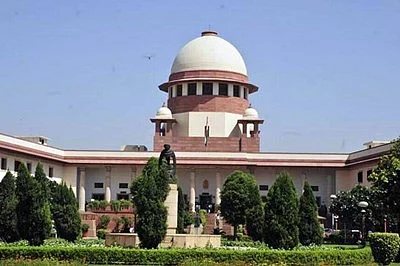It is nobody’s case that the freedom of expression should be misused to arouse anti-national sentiments. If some misguided students of JNU organised an event on February 9 in memory of Afzal Guru, hanged in 2013 after his conviction in the Parliament attack case, and raised ‘anti-India’ slogans in the university campus, it was for the university authorities to take appropriate disciplinary action against them. The Vice Chancellor Jagdeesh Kumar has instituted a disciplinary inquiry in the case and debarred some eight students pending probe.
THE JNU is known for promoting the culture of debate. It has the tradition of allowing different schools of thought to grow and flourish on campus. The right wing elements should not feel threatened by the views of the left wing and vice versa. If the political interference in the internal affairs of universities continues unabated, it would be a death knell of academic freedom.
The Union Home Minister Rajnath Singh and HRD Minister Smriti Irani should not have reacted in the manner they did. The Home Minister contacting the Delhi Police Commissioner B.S. Bassi and asking him to take prompt action, as if the Indian state is under siege, was unwarranted. His statement “anyone who raises anti-India slogans or tries to put a question mark on the nation’s unity and integrity will not be spared” and HRD Minister saying “the nation can never tolerate any insult to mother India,” were inappropriate. They jumped the gun. It is something similar to what happened in Hyderabad Central University. It is on the complaint by the ABVP and the BJP’s Delhi MP Mahesh Giri that the police have filed a FIR against some unknown persons. This is yet another instance of political interference in internal affairs of the university, eroding the academic autonomy of educational institutions.
The arresting of JNUSU President Kanhaiya Kumar — an activist of AISF — and invoking the charge of sedition under Section 124 A of the IPC against him is nothing but a naked abuse of the sedition law. It is a clear attempt to intimidate and muzzle dissent — the essence of democracy. The Constitution Bench of the Supreme Court, in the case of Kedar Nath Singh vs State of Bihar 1962, had clearly laid down that “a person can be charged with sedition only if there is incitement to violence in his speech or writing ….” Mere sloganeering or criticising the government polices and decisions do not incite people to rebel. The police action demonstrates that there is a grey area between the statutory provision and its enforcement.
It may be stated here that in the college and university campuses the students and the faculty do discuss and debate many controversial issues of national importance. If all that transpires in the classrooms is recorded and videographed and played out, then we will have hundreds of teachers and students arrested on sedition charges. The freedom of speech and expression is an essential ingredient of intellectual growth. It ought to be tolerated. Take for instance, Shashi Tharoor’s speech at the Oxford University Union Debates last year where he spoke of the British government reparation for the damage it inflicted upon India during its 200 years colonial rule. Should the British government level the sedition charge against the Organisers of the Debate for anti-British and anti-national activity?
The JNU is known for promoting the culture of debate. It has the tradition of allowing different schools of thought to grow and flourish in the campus. The right wing elements should not feel threatened by the views of the left wing and vice versa. If the political interference in the internal affairs of universities continues unabated, it would be a death knell of academic freedom. The JNU Vice Chancellor should not have allowed the police crackdown on students. He is competent to handle campus affairs. The Central Universities coming under the administrative control of the HRD Ministry does not give the Ministry the right to interfere in their internal affairs.
It is in the national interest to remind both the HRD Minister and the VC of what Jawaharlal Nehru had visualised the role of a university. While delivering the convocation address at the University of Allahabad on December 13, 1947, he said: “A university stands for humanism, for tolerance, for reason, for progress, for the adventure of ideas and for the search for truth. It stands for the onward march of the human race towards even higher objectives. If the universities discharge their duty adequately, then it is well with the nation and the people. But if the temple of learning itself becomes a home of narrow bigotry and petty objectives, how then will the nation prosper or a people grow in stature?” If everyone has to be a camp follower or conformist, then why do we need premier universities like the JNU?
G.Ramachandram is author of the book ‘Nehru and World Peace’, Professor of Political Science and a retired Principal, Founder Secretary, Association of Indian College Principals.
Also Read By the Author:






